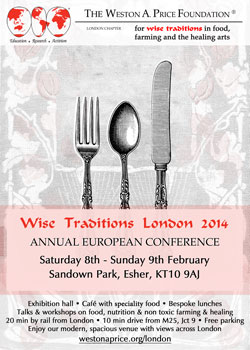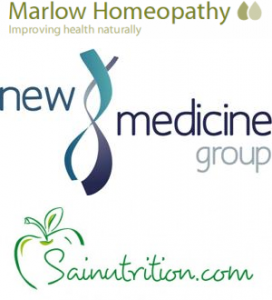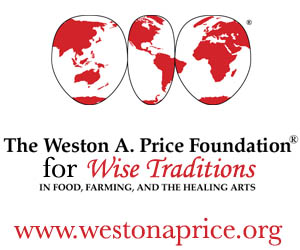With the fourth Weston A. Price Foundation European conference only days away things are getting really exciting!
We would like to take this oppurtunity to not just to notify our visitors on a couple of programme changes, also introducing three new treatments available and a brilliant new talk which will help incorporate all the knowledge available at the conference into your daily lives.

Sunday 5pm-6pm We are happy to introduce a new talk by Milko Georgieve and Maria Mitova entitled “How to Build Your Menu”.
Consisting of a “Knowledge” and a “Practice” section the talk will provides an insightful roundup of the conference, with practical ideas on how to incorporate the knowledge learned during the conference into your day-to-day life.
“Knowledge”:This section will focus on teaching visitors about five areas:
- Calorie distribution – how much of the food we consume is used for energy and how much for building material.
- Guidelines on the frequency, timing and combination of foods for optimal nutrition.
- Lean body mass, as the adequate dietary calculations base.
- Protein, how to determine the amount needed by our body based on our goals.
- Quick review of the types of carbs, protein and fat products you will use to build your menu.
“Practice”:Two volunteers from the audience will be invited up on stage. As a demonstration on how to incorporate the information gained across the weekend, we will set their goals and lifestyle for exercise, determine adequate daily calories for each of them and calculate together how much protein, fat, and carbs they should eat. Finally, we will build a menu for each of them from a list of provided products. The audience will be helping the volunteers. The workshop will end with 5 minute Q&A session.
New Treatments Available:
Additional treatments will be available from Marlow Homeopathy, Thrive Health and Sai Nutrition.

Marlow Homeopathy:Can be found by the cafe offering consultations all weekend for:
- GAPS (Gut & Psychology/Physiology Syndrome).
- CEASE detoxification protocols
- Homeopathy.
- Asyra Pro Bio-energetic health screening.
Thrive Health: Specialising in Traditional Chinese Medicine, integrating all of the my training and experience in a flexible manner, that enables the treatment to be tailored and adapted to suit the needs of each individual patient. Parmjit Sandhu will be available for treatment and consultation.
Sai Nutrition: Available for consultations in the cafe area all weekend, Sai Nutrition deliver powerful yet gentle natural therapies that targets the client’s health challenges at their roots, not just dealing with their symptoms.
Other Programme Changes & Amendments:
 Saturday 10am-11.10am Sir Julian Rose and Michael Antoniou PhD will be taking over from Jeffrey Smith in the Saturday morning Q&A debate and talk on GMO’s.
Saturday 10am-11.10am Sir Julian Rose and Michael Antoniou PhD will be taking over from Jeffrey Smith in the Saturday morning Q&A debate and talk on GMO’s.
Saturday 4.30pm-6.30pm The afternoon Sourdough Bread workshop with Jane Mason has been shifted later so it does not clash with Karen Maidment’s Offal cooking demonstration.
